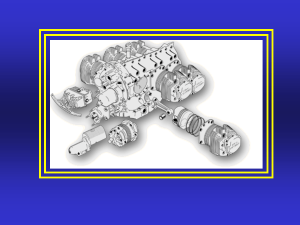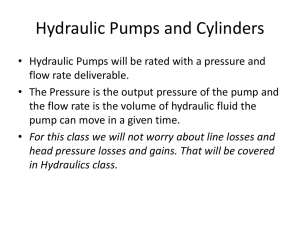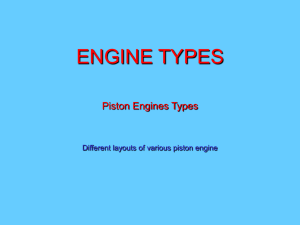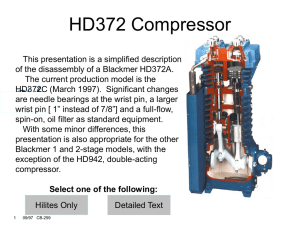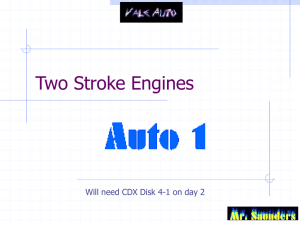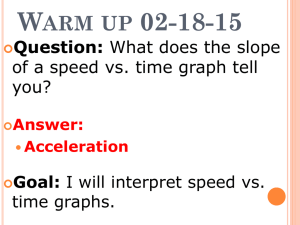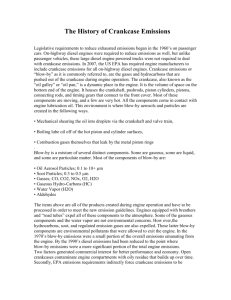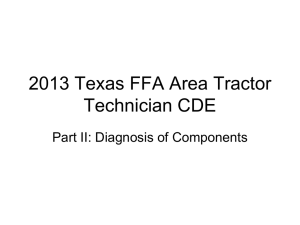Cross Head Engine Stuffing Box
advertisement
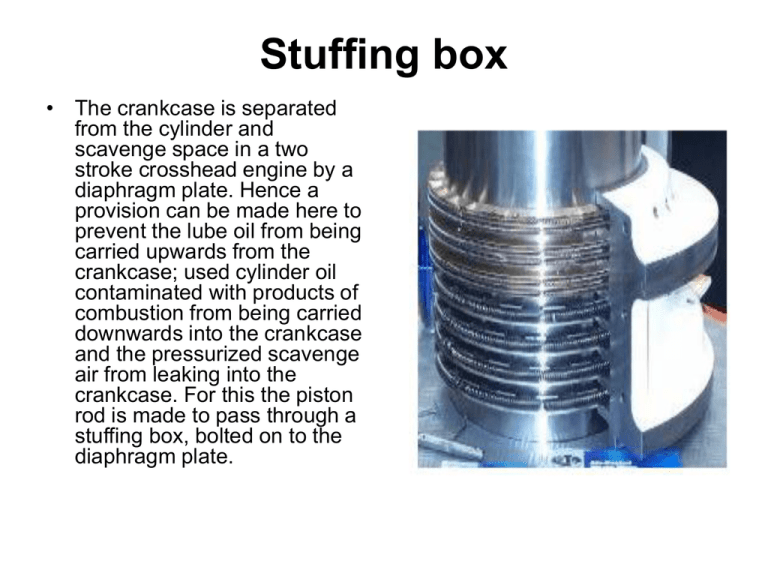
Stuffing box • The crankcase is separated from the cylinder and scavenge space in a two stroke crosshead engine by a diaphragm plate. Hence a provision can be made here to prevent the lube oil from being carried upwards from the crankcase; used cylinder oil contaminated with products of combustion from being carried downwards into the crankcase and the pressurized scavenge air from leaking into the crankcase. For this the piston rod is made to pass through a stuffing box, bolted on to the diaphragm plate. • The stuffing box casing is split vertically into two parts. It carries a series of rings, which are made up in three or four segments. On the outside of each set of segment, is a garter spring. This provides the tension to hold the ring segment against the piston rod. There is clearance between each segment to allow for wear. The rings are made of either bronze or cast iron lamella, fitted in replaceable steel backing ring. • As the piston rod passes up through the stuffing box, the lube oil from crankcase is scraped off by the lower set of rings and drained back to the crankcase though drillings. Any lube oil that passes this primary set is scraped by another set of rings and is led through a drain to a piston rod drain tank. As the piston rod passes down through the stuffing box, the top set of rings will scrape off the contaminated cylinder oil to the bottom of scavenge space, where it is drained via the scavenge space drains. However, if these rings are worn out, then the contaminated cylinder oil will drain to piston rod drain tank. • Regular maintenance of the stuffing box will keep it in good condition. Checking the scraping rings butt clearances and garter springs tension and replacing the worn out rings are all part of the overhaul procedures. Excessive wear will take place if the crosshead guides are out of alignment or the guide clearances are excessive. Worn stuffing boxes and excessive leakages can exacerbate the incidence of scavenge fire and increase the risk of crankcase explosion.

